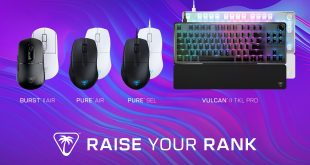To test the DuoDock 2S we used the USB3.0 ExpressCard provided by Akasa in conjunction with a Clevo M860TU notebook computer. We chose to use a Kingston SSDNow V+ 64GB solid state drive in the dock to minimise any performance limitations.
Crystalmark is a useful benchmark to measure theoretical performance levels of hard drives and SSD’s. We are using V3.0 x64.
A strong set of results in this test, showing how USB3.0 is definitely worth the price premium over USB2.0.
We have been using HDTach for many years now and always find it is an invaluable benchmark to ascertain potential levels of performance. HD Tach is a low level hardware benchmark for random access read/write storage devices such as hard drives, removable drives (ZIP/JAZZ), flash devices, and RAID arrays. HD Tach uses custom device drivers and other low level Windows interfaces to bypass as many layers of software as possible and get as close to the physical performance of the device possible.
Again we see good scores in HDTach with an average read speed of 130.6 MB/s. When connected via USB2.0 we only achieved an average read speed of 31.8, meaning USB3.0 performance is around 400% of USB2.0.
The ATTO Disk Benchmark performance measurement tool is compatible with Microsoft Windows. Measure your storage systems performance with various transfer sizes and test lengths for reads and writes. Several options are available to customize your performance measurement including queue depth, overlapped I/O and even a comparison mode with the option to run continuously. Use ATTO Disk Benchmark to test any manufacturers RAID controllers, storage controllers, host adapters, hard drives and SSD drives and notice that ATTO products will consistently provide the highest level of performance to your storage.
Another strong set of results from the Kingston SSDNow V+ 64GB and the DuoDock 2S. For those who plan to use a mechanical hard drive, the difference in performance between USB2.0 and USB3.0 won't be so pronounced.
For our real world tests we used a single 2.09GB .AVI file and a mixed file folder making up 7.62 GB altogether. In the test we copied these to and from the RAID volume. Our test system featured a Corsair F40 Solid State drive connected to one of our motherboard's SATA 6Gbps ports.
This test shows the real world performance of the dock which is very impressive, allowing the transfer of large amounts of data very quickly.
 KitGuru KitGuru.net – Tech News | Hardware News | Hardware Reviews | IOS | Mobile | Gaming | Graphics Cards
KitGuru KitGuru.net – Tech News | Hardware News | Hardware Reviews | IOS | Mobile | Gaming | Graphics Cards






